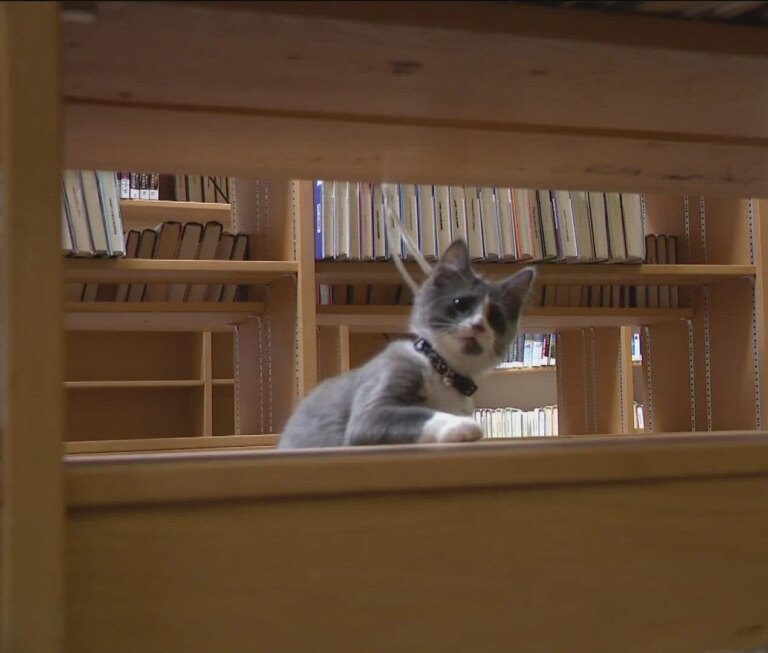Visiting Teplitz in 1812, Ludwig van Beethoven received a gift from a young fan. In his response, the composer offered valuable advice on how to be an artist.
We might think of fan mail and celebrity culture as something recent, something post-modern. But even two hundred years ago, there were famous artists and cultural figures, and these famous figures had fans of their own.
Perhaps one of the most famous of all was Ludwig von Beethoven – the composer and musical genius whose work has echoed down the ages. In 1812, he received a gift from an adoring fan, and the response he gave was something truly remarkable.
Emilie and the Pocketbook
In early 1812, a young pianist named Emilie decided she wanted to do something for an artist who had inspired her own creativity and musical development. She sat down to write a letter to her hero and to make a gift for him – a small, embroidered pocketbook.

The artist in question was Ludwig van Beethoven. Despite being only 41 years old, Beethoven had been composing for at least 30 years. By the early 1800s, he was an international celebrity, partly thanks to his world-famous Fifth Symphony, composed between 1804 and 1808.
As he prepared his response to Emilie, he was taking the first steps into his innovative late period, beginning with his Ninth Symphony, composed that summer.
Beethoven’s Response

In the summer of 1812, Ludwig van Beethoven was not in the best of health. Struggling with money, experiencing bouts of physical and mental illness, and devastated by the hearing loss for which he would become famous, he retreated to the town of Teplitz in Bohemia – today, Teplice, in Czechia.
The beautiful natural environment and the calming atmosphere were supposed to do him the world of good. But on his arrival, the weather had been dreadful, and it’s doubtful that Beethoven’s mood was a positive one. As the composer was known to be difficult and prone to rage, even at the best of times, it’s likely that Beethoven’s presence made his fellow guests a little uneasy.
But it seems that the letter from Emilie helped to improve his spirits enormously. He not only took the time to send her a warm response but also composed a valuable and instructive guide to becoming an artist.
Here it is:
My Dear, Kind Emilie, My Dear Friend!
My reply to your letter to me is late in arriving. My excuse must be a great amount of business and persistent illness. The fact that I am here for the recovery of my health proves the truth of my excuse. Do not rob Handel, Haydn and Mozart of their laurel wreaths. They are entitled to theirs, but I am not yet entitled to one.
Your wallet will be treasured among other tokens of a regard which several people have expressed for me, but which I am still far from deserving.

Persevere, do not only practice your art, but endeavor also to fathom its inner meaning; it deserves this effort. For only art and science can raise men to the level of gods. If, my dear Emilie, you should ever desire to have anything, do not hesitate to write to me.
The true artist has no pride. He sees unfortunately that art has no limits; he has a vague awareness of how far he is from reaching his goal; and while others may perhaps be admiring him, he laments the fact that he has not yet reached the point whither his better genius only lights the way for him like a distant sun. I should probably prefer to visit you and your family than to visit many a rich person who betrays a poverty of mind.
If I should ever go to H., then I will call on you and your family. I know of no other human excellences than those which entitle one to be numbered among one’s better fellow creatures. Where I find people of that type, there is my home.
If you want to write to me, dear Emilie, just address your letter to Teplitz, where I am staying on for four weeks. Or you may write to Vienna. It really doesn’t matter. Look upon me as your friend and the friend of your family.
Ludwig v. Beethoven
Who Was Emilie?
It is not known for certain just who Emilie was. She is listed as ‘Emilie M.’ in the archives of Beethoven’s correspondence, but she is not Emilie Mayer – the prolific German composer known as “the Female Beethoven.” The aspiring pianist is believed to be 12 years old – or between eight and 10 years old, according to some sources. Mayer would only have been two months old in July 1812.

The Emilie of the letter is believed to be from Hamburg, although this is not confirmed either. The actual identity of the person who embroidered the gift, sent it to Beethoven, and then received his letter in return, remains something of a mystery. It’s also unclear as to whether she continued her correspondence with Beethoven – he certainly invited her to do so.
The unknowns of the tale add to the intrigue surrounding it, and also make the letter more universal – it’s like he’s writing to all of us, offering advice that each of us could follow in our own endeavors.
Celebrity and Artistic Admiration

Beethoven was undoubtedly one of the biggest celebrities of his day. He may not have been a particularly rich man in 1812, but he was certainly a famous and respected artist, as evidenced by young Emilie and her letter.
But as an amusing coincidence, Beethoven himself became starstruck that summer. Another guest at Teplitz in 1812 was Johann Wolfgang von Goethe, one of Beethoven’s few rivals in the pantheon of German culture in the early 19th century.
Beethoven had a deep love of Goethe’s work. He’d composed scores for some of Goethe’s plays and set some of the writer’s verse to music. The composer had already written to the author and was delighted when he received an encouraging response.

Arriving in Teplitz, Beethoven was eager to meet the legendary writer, and to discuss collaborating on an opera. Beethoven achieved one of his ambitions that summer – he met his hero. But the opera never came to pass.
The story of Beethoven and Goethe offers a nice bit of symmetry with that of Emilie and her pocketbook. It’s comforting, and even a little humbling, to discover that our heroes have heroes too, and they get starstruck just like we do.
Join our community of 1.5M readers
Like this story? You'll love our free weekly magazine.








